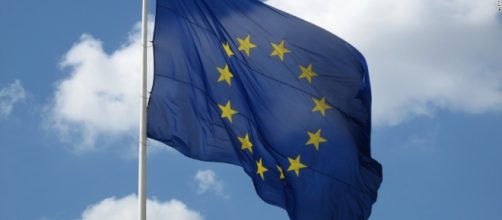Any player knows that a poker game in three can easily be stacked against one of the players. The international poker game now being played between the United States, Russia and China had been dominating the world headlines in recent weeks and now it is time that the game be expanded to include the fourth player that will even the odds for Washington.
Playing fields
At the present time United States President Donald Trump and Secretary of State Rex Tillerson are involved in a complicated series of international issues which in one way or another involve China and Russia.
The Beijing-Washington axis does not involve only the means by which to control the provocations of North Korean Dictator Kim Jong-un who is demanding that the world’s attention with his attempts at building a nuclear arsenal. The two superpowers must resolve two other issues.
The first of these is that of the South China Sea with the obvious Chinese military expansion indicated by the construction of artificial islands in the sea that can be used as military bases in the case of future conflicts. These islands worry America’s allies which also claim sovereignty over parts of the sea. The second issue is that of trade with President Donald Trump wanting to change the trade balance between the two countries which now favours the Asian giant.
Russia and the United States are facing off on a number of fronts, the most important of which is Syria but no less worrying are the allegations of Russian hacking of the presidential election in favour of Donald Trump and the aggressive Russian policies in Eastern Europe.
Fourth player
Currently the United States is acting alone in these issues and needs a new player to enter the game to give much needed support, in particular with Russia.
On paper the player already exists, the European Union, but it is still to find its proper identity. At this stage it is still more a trade alliance rather than a solid political and diplomatic identity. This must change if the EU is to become the fourth player in the international poker game.
While the withdrawal of Britain has dealt a blow to this identity, the greater part of the debate is now occurring with the national elections in France and Germany which will tell us what the future direction of the EU will be. The German election is between two pro EU candidates, Chancellor Angela Merkel seeking a fourth term at the helm and former European Parliament President Martin Schulz both of which will support the EU.
The French election on the other hand sees far right candidate Marine Le Pen of the National Front making gains and her anti Europe stance is worrying the other member countries. This will be the election that holds the key to the future of the EU. Although a final victory by Le Pen is unlikely, any significant support to her may cause some French politicians to reconsider their stance on the EU.
No matter what the result of The French election the members of the European Union must now consider the future of the Union and decide whether to remain between the United States and Russia or to become a true player in the game at make its voice heard by the three superpowers that are dominating the international diplomatic game.
On the 70th anniversary of the signing of the Treaty of Rome which began the process of the formation of the European Union it is about time that it takes its place at the table as an equal to the other players.

